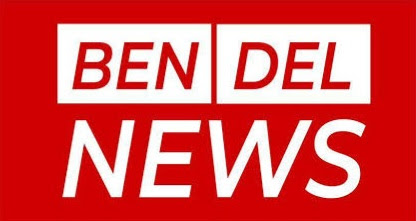
photo credit-premium times
Yemi Osinbajo has accused the Central Bank of Nigeria, led by Godwin Emefiele, and other banks for failing to execute the N2.3 trillion post-COVID-19 stimulus package, resulting in “economic pains” for Nigerians.the Vice-President said the currency rate was intentionally low, discouraging investors from bringing foreign exchange into the country during President Muhammadu Buhari's second term midterm retreat.
The economic hardships connected with COVID-19 would have been deeper and lasted longer if Buhari had not established the sustainability plan, he said.
While outlining the accomplishments of the post-COVID-19 stimulus, Osinbajo noted that the CBN and banks took too long to release most of the money, causing delays in the Agriculture, Solar Power, and Social Housing sectors.
The Economic Sustainability Plan for MSMES has resulted in 1.1 million beneficiaries under the N75 billion ESP Survival Fund for MSMES under the MSME." This includes 459,000 people who received three-month payroll assistance, 293,000 transport workers and artisans who received a one-time grant, 244,000 MSMES who benefited from the CAC Formalization Scheme, and 82,000 businesses who received one-time grants under the MSMES Grants Scheme, according to a statement from the Vice President's office..
"Osinbanjo also discussed accomplishments in the Agriculture sector under the ESP, including N471 billion given as loans to farmers across 14 crop value chains, beef production, aquaculture, and poultry farming." However, he regretted that just N14 billion of the allotted money had been disbursed by the financial system, which included the CBN and commercial banks.
"Of the N471 billion, only N14 billion has been released to commercial banks and has yet to be used by farmers owing to the delayed release for the 2021 wet agricultural season."
"He felt the same way about the ESP's Social Housing Program, which aimed to build 300,000 low-cost, mass-affordable homes throughout the country.
"The VP stated that there are ongoing delays in the CBN's distribution of money. The Debenture Agreement with the CBN for N200 billion, which constitutes the majority of the funding, was negotiated on April 22nd and signed by all parties. Disbursement, on the other hand, has yet to occur.
"When the VP examined the ESP's Solar Power Naija initiative, where 5 million solar power hookups are planned, there was a similar lamentation. According to him, this scheme would provide electricity to 25 million Nigerians. He has already stated that 704,000 solar hookups are in the works and that another 600,000 are on the way.
"However, the 5m Solar Connections objective is being postponed since, while N140 billion was budgeted to assist, only N7 billion has been released." The CBN's unwillingness to issue money, as well as risk aversion among public and private financial institutions, notably for power projects," were among the obstacles to a faster implementation pace.
"Despite oil production difficulties, revenues increased with the Sustainability Plan in place, according to the VP, and macroeconomic indexes are heading in the right direction." Aside from that, there has been a comeback in a number of sectors, including transportation, which has increased by 77%, hospitality by 2%, education by 1%, real estate by 4%, trade by 23%, and construction by 4%.
"According to CBN reports, a total of N798 billion was disbursed to 3.9 million small holder farmers under the Anchor Borrowers Programme, N134 billion was disbursed to 38,140 beneficiaries in soft agric and small business loans and grants, a total of N1 trillion was disbursed to 269 real sector projects, and another N103 billion was disbursed to 110 health care projects."
"The vice president remarked during the conference that if it hadn't been for good policies, the Nigerian economy would have been worse off than most other economies currently dealing with the negative effects of COVID-19." Osinbajo led the audience down memory lane, recounting the country's amazing recovery from two recessions - in 2016 and 2020.
“It should be remembered that the economy was already on the mend in the third quarter of 2020, adding that the recent fourth-quarter data demonstrate that the Nigerian economy is steadily recovering owing to the Economic Sustainability Plan (ESP). The ESP is the result of President Buhari's April 2020 Economic Sustainability Committee (Esc), which was chaired by Vice President Yemi Osinbajo.
“The ESP was adopted by the Federal Executive Council in June 2020, and the Vice President was asked to manage the Plan's implementation. The ESP intends to avoid a serious recession, assure economic recovery, and infuse cash into the economy via direct transfers, among other things.”
